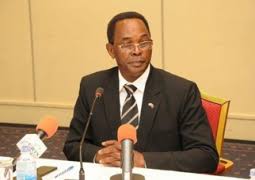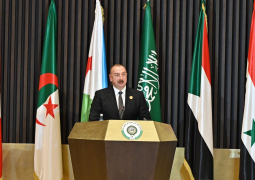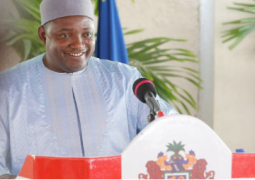
The system of government was anchored on democracy, peace and prosperity. The country thrived under this atmosphere for three decades. Later, the military took over power and claimed as a major reason the issue of alleged corruption in the system. Eventually the country transitioned from democracy to benevolent dictatorship with massive social and economic benefits to the Nation.
Again, we Gambians in many quarters have started to say that HE Adama Barrow is not good for the country despite us seeing the ongoing massive infrastructure and social development projects across the country and democratic governance as the hallmark of the system. One may ask the question as to what sort of system and leadership we want for our country. If we make political stability impossible, we shall make political intoxication inevitable and nobody will win the dividends of democracy. Our country will always be in social conflict and economic regression. Perhaps, therefore, we (the political leadership and the people) should go into a National Convention to decide on what sort of country we want and under what type of political system. The outcome of such a Convention could produce a new constitution that will serve as the legal framework for the governance of the country. Look at the political mess the country found itself in a mixed system due to no new constitution to usher in the third republic and holding on to the 1997 constitution considered to be an instrument of dictatorship. What the country needs are sustainable democracy and sustainable development to be in the moment of civilization. We cannot afford democratic fragility that presents a bad picture of every government that comes into power. It is a sovereign responsibility for Gambians to chart out a clear map to governance.
We seemed to be focused on too much politicisation of the Nation than focusing on the requirements of a stable democracy and marching in solidarity and in development. It is not the time for the 2026 elections. It is time for work to continue in the best interest of the country. Any government that may come must expect the support of the people for the country to progress. This cannot be possible in the absence of peace and social cohesion. No one is denying the fact that the people have the rights to the exercise of democratic freedoms but this should not derail the development process. It is not a question of opposing the government, it is a question of backing the development drive of the government elected by the very people. How can the government be held accountable for issues that are either under judicial process or for which there are ongoing inquiries that are nationally televised. Hence the need for the people to exercise patience and to lower the political temperature until these ongoing efforts are concluded.
We are all concerned about public accountability but this can be realized in the fullness of time. We should focus on getting the constitutional process back on track in order to achieve a national consensus on it and to allow the current development projects to proceed smoothly because these are in the very interest of the people those seeking for power wish to serve. If the impression is widely established that the masses of the people are being denied the development opportunities which they deserve, there could be a political backclash that could affect the chances of political aspirants in the 2026 elections. The political rhetoric should be couched in appropriate political language. It is therefore politically advisable for political parties and Independent aspirants to always be committed to addressing the pressing issues of the day and how these will be tackled when they are in power. Talking about substantive plans can draw the attention of voters and build trust in the Party’s agenda for development.
Another fundamental problem in the National dialogue is that government and especially the sector Ministries are not able to properly articulate certain policy decisions for public accountability and transparency. For example, attacks on the management and operations of the Gambia Ports Authority, Senegambia bridge Africa 50 deal, transfer of ground handling operations from Gambia International Airlines to a private company called NIRO, the sale of Jammeh Assets, the offshore oil blocks saga, and many others. Do Gambians know of what benefits to the country since the Turkish takeover of GPA. How were the funds derived from Africa 50 for the Senegambia bridge utilized in the economy, to name a few. Public accountability is the cornerstone of good governance and it answers the concerns of the people and clears doubts about the operations of the State. It is not the President except in a state of the Nation address, who should explain all that is going on in governance of the country. There are the institutions and Ministers appointed to do the job and to inform the public about policy decisions and implementation of government projects, programs and economic agendas. Government is collectively responsibility, and therefore, there must be consequences in governance for wrong doings and for sectors that have failed and shamed the Nation.
Read Other Articles In Opinion
Economywatch - BIZFINANCE LEXICON
May 14, 2024, 10:52 AM



